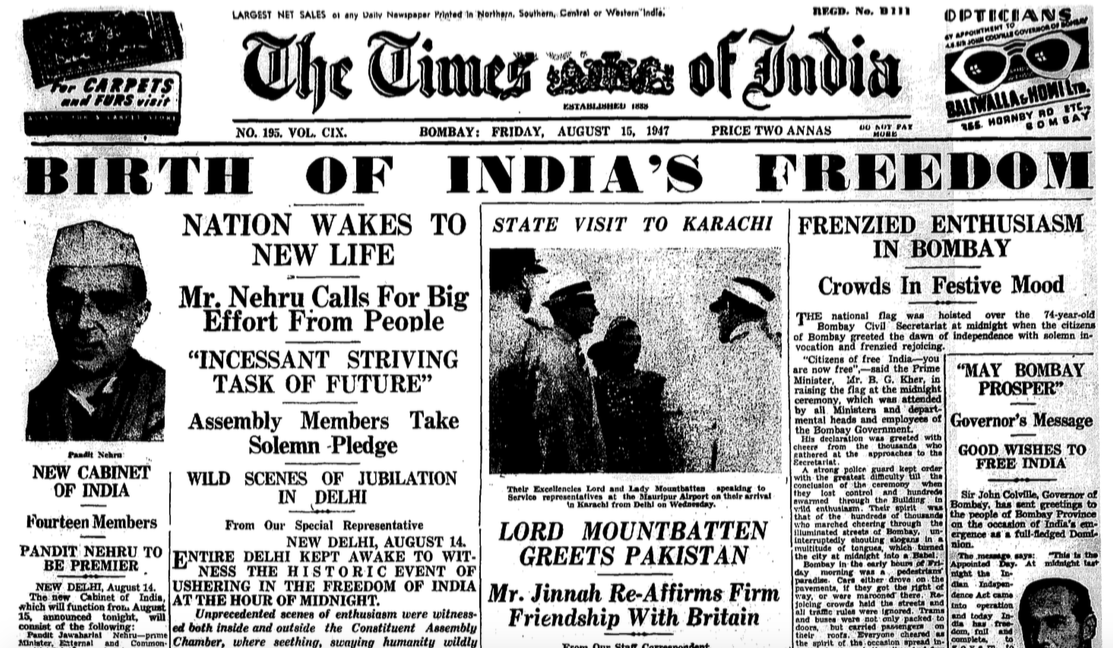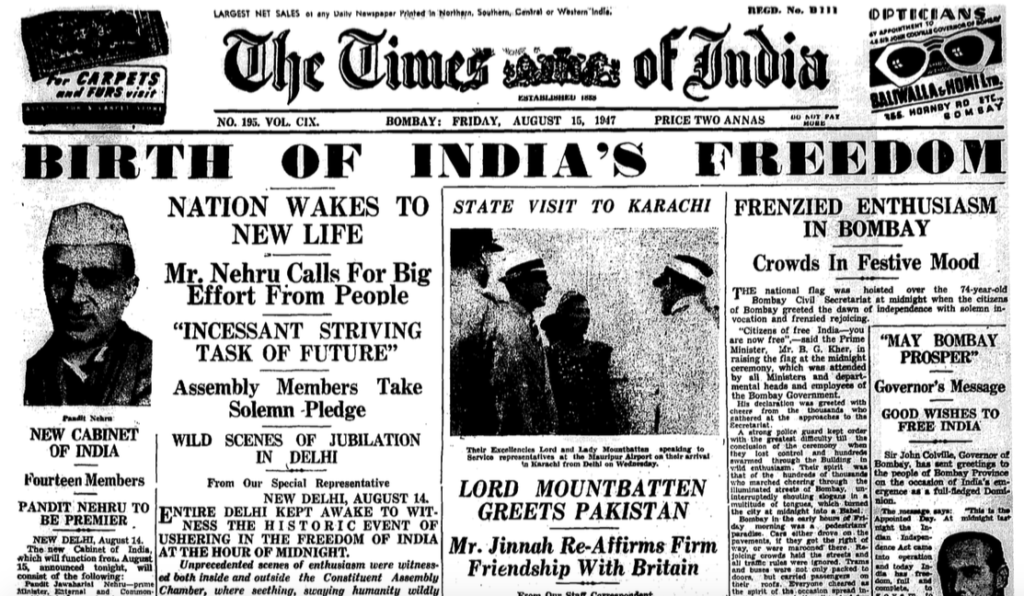
Historian says Mahatma Gandhi’s Non-violence or Noncooperation movements brought India’s independence. But that’s the significance that weighs less than the other attributes. And weightage of this fact was deliberately highlighted, or others were abstracted to show the importance and ignore the other. Bipin Chandra and R C Mazumdar deliberately hid the facts because they were extreme left-wing supporters and prejudiced against some heroes.
In our academics, we are being taught that the Independence of India was the outcome of the efforts of the Indian National Congress and Mohandas Karamchand Gandhi. Indian history books are highly unbalanced books you ever find in our life. And when it’s about education, thanks to Thomas Babington Macaulay, who successfully ruined the Gurukul Culture. He imposed the British education system and destroyed ours.
There were three significant factors that weight more than Mahatma Gandhi’s factors which landed the fatal blow on the dream of Britishers to rule India.
Azad Hind Fauj & Indian National Army’s Mutinies
Trials
We all know that the Azad Hind Fauj had attacked along with japan’s army and won the Andaman and Nicobar. During the battle of Imphal and Kohima, Azad Hind Fauj and the Japanese military saw a disastrous defeat at the hands of the British. There were around 28,000 casualties or people missing. The British don’t want to disclose this to the people of India. Hence few of them were Court-martialed with allegations of treason, torture, murder, and abetment to murder. The British treated them as criminals; however, they were prisoners of war. The Government wanted to charge them with “Waging War against the King,” contrary to Section 121 of the Indian Penal Code. As the case went on from early trials to the public, it brought political importance and significant momentum.
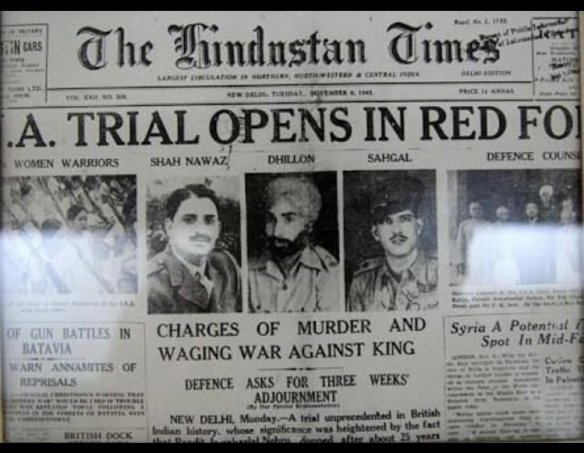
When the case went on, there was outrage all over the country. Subhash Chandra Bose’s ‘Chalo Delhi!’ mission may be a strategic failure, but politically, there was no way to prevent him from getting a fiery victory. After WW II, the British Government pardoned the revolutionaries of the Azad Hind Fauj under the pretext that they had been misled into ignorance.
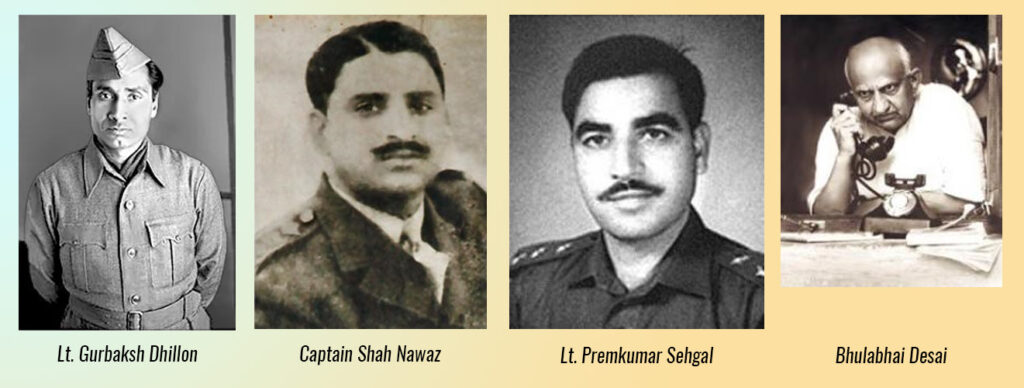
Contrary, they had to show the paper of power to the people of India so that the Government would not get the impression that it was weak. Hence public trial took place, and Lt. Gurbaksinh Dhillo, Captain Shah Nawaz, and Lt. Premkumar Sehgal were found guilty. The Government chose Delhi’s Red Forthosen for the trial. Lawyer Bhulabhai Desai fought the case on behalf of the accused. He took the deposition of several witnesses so that the testimony would introduce this fact to the ignorant people of India. The introduction shocked the people in the dark due to British censorship, and the soldiers of all three military wings of India were also surprised.
The Mutinities of the Army
All members of the Royal Indian Air Force went on strike. They removed the Royal word from all the planes. They stopped saluting the British officers and ignored their orders. Royal Indian navy’s sailors were already dissatisfied with the food quality. Due to the Red fort trials, 20,000 sailors from 11 units joined the movement by 19 February 1946. They also defied all orders of the British Government. HMIS Talwar was a naval base with a radio station. The rebels declared the strike. And as soon as other stations received the message, they joined and hijacked 78 ships and patrol boats and ignited the Rebellion. Slogans became a daily occurrence in the navy’s barracks. The Government killed 400 people to control this Rebellion, but that was a death blow to the rule.
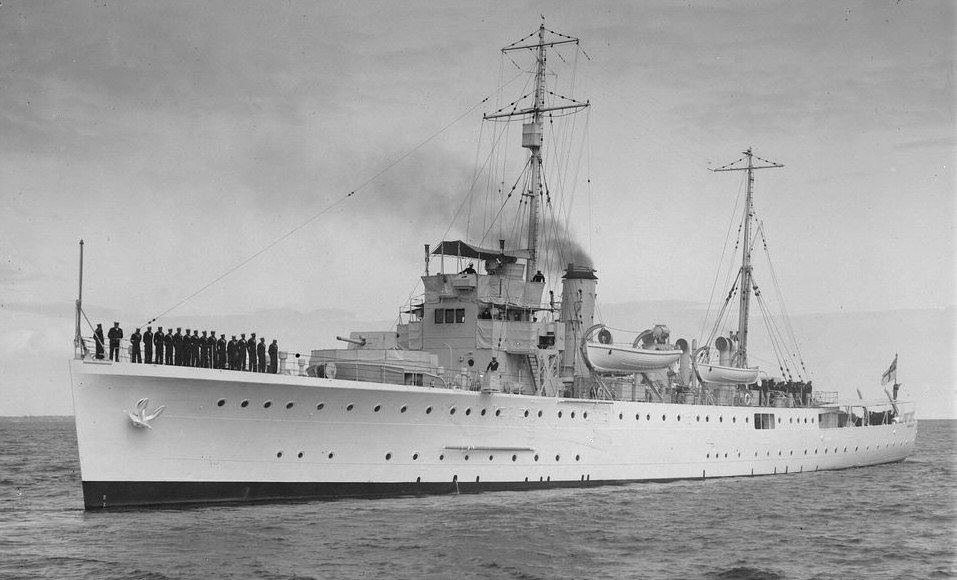
The message to British Prime Minister Clement Attlee of the noncooperation campaign of all three wings was clear. The British Government could not rule India if the Indian army did not want to stay on the side of Britain. Britain had controlled India with Indian soldiers since the Battle of Plassey on 23 June 1757, so Clement Attlee had decided to free India as keeping under the yoke of slavery with Indian soldiers was no longer possible now and hence decided to end it. Just after that year, India became independent.
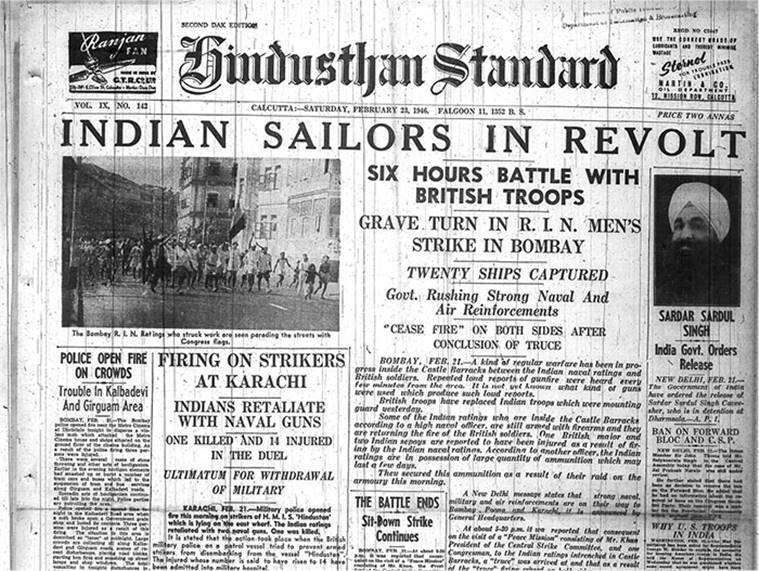
Subhash Chandra Bose was defeated at the Imphal and Kohima fronts, but he indirectly won the Delhi front. Perhaps Clement Attlee was accepted in front of the Governor in Raj Bhavan of Calcutta. Admittedly, the British thought Subhash Chandra Bose was more important than Gandhiji.
World War II and Economic Crisis
The period from 1929 to 1939 was disastrous due to the great depression. The crash of Wallstreet has also resulted in an impact on Britain’s stock markets. Unemployment skyrocketed during this span. It went to more than 20% from just over 10% in 1929 (more than 3 million of the workforce) by early 1933.
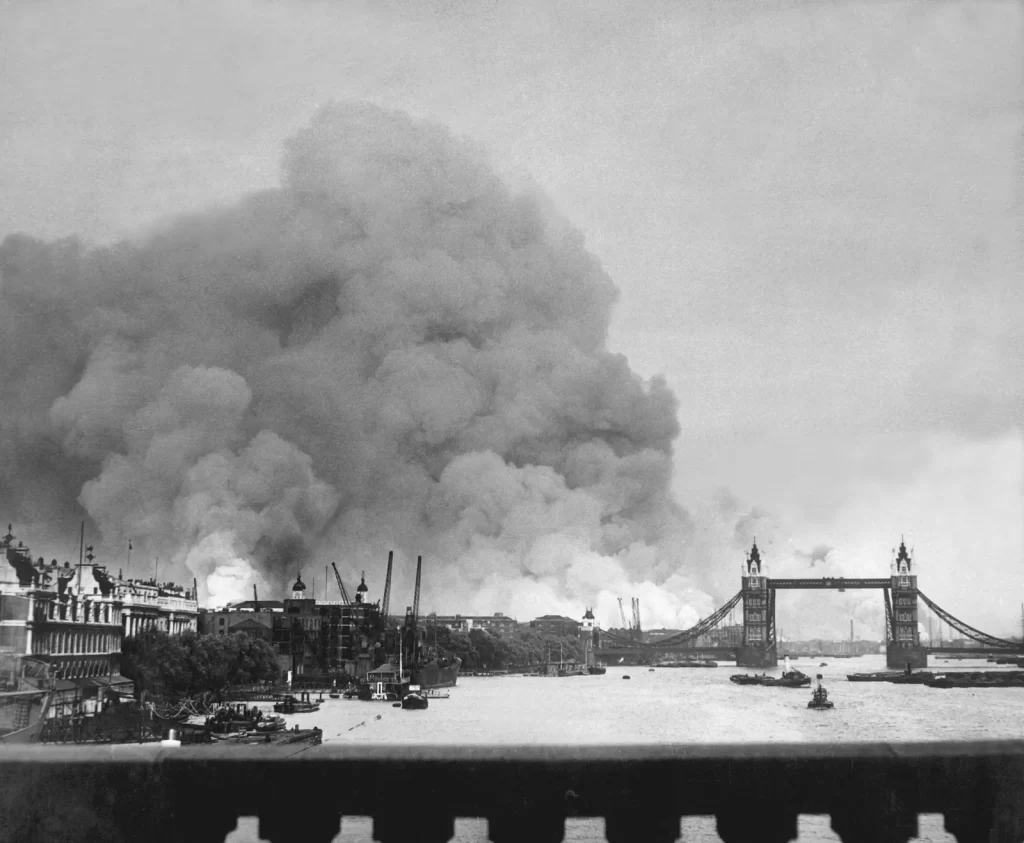
In 6 years of war, the U.K. received 10 Billion pounds.
| Amount | Source of the Income |
|---|---|
| £1.1 billion | Sale of investments |
| £3.5 billion | New borrowing |
| £2.7 billion | The Empire’s Sterling Area |
| $3 Billion | Gifts and Loans from Canada on easy Terms |
During WW II, the British Government utilized its gold and dollar reserves to pay for munitions, oil, raw materials, and machinery. The volume of British exports was down by 37% as compared to 1935. Although the British Government had committed nearly $10,000 million in orders from America, Britain’s gold and dollar reserves were near exhaustion. The Roosevelt Administration was dedicated to the large-scale economic support of Britain. In early 1941, enacted Lend-Lease, whereby America would give Britain supplies totaling $31.4 billion, which never had to be repaid.
Economic Crisis
Nonetheless, after WW II, Labour set about enacting the measures that, in some cases, had been its program since the commencement of the century. In addition, the Government nationalized road transport, docks and harbors, and electrical power production. There was little debate. More debate came over Labour’s social welfare legislation, which created the “welfare state.” In its most controversial move, it established the gigantic framework of the National Health Service.
U.K. national debt peaked in the late 1940s at over 230% of GDP. There was a consistent decrease in the debt to GDP ratio.
Rationing continued after hostilities ended to pay off billions in U.S. debts. The brutal winter of 1946–47 created widespread fuel depletion, impairing the economy further and causing a run on the Pound Sterling, leading to future devaluation.
Pressure from Other countries
One surprising contribution was from the USA. Franklin Roosevelt, the American president, had pressurized U.K.’s Prime Minister, Winston Churchill. In August 1941, Roosevelt and Winston Churchill met to set shared goals for the postwar world on a document known as the Atlantic Charter.
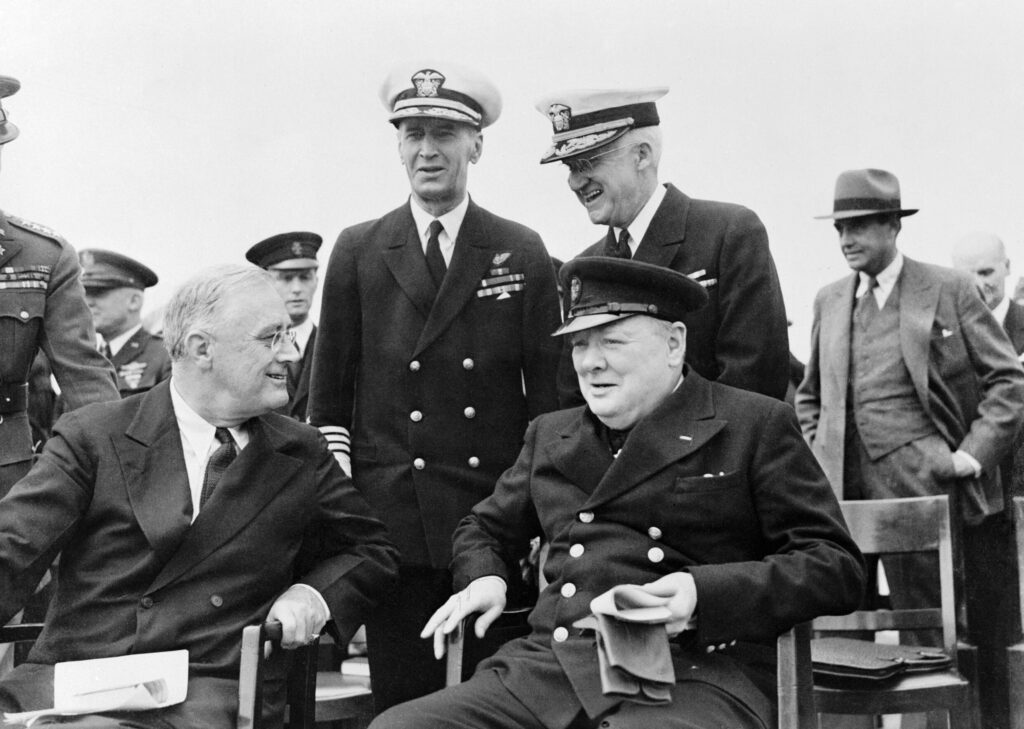
Franklin Roosevelt’s acknowledgment that all people had a right to self-determination gave hope to independence leaders in British colonies. He insisted that the charter acknowledge that the war was being fought to ensure self-determination. And Churchill stated in September 1944 that he would apply only to states under German occupation, not to the other part of the British Empire. Churchill and other British government officials argued that British colonies never had “sovereign rights”; therefore, there was no pre-existing sovereign government to reform to power after the war.
Churchill rejected its universal applicability. Self-determination was Roosevelt’s guiding principle, but he was reluctant to place pressure on the British regarding India. India already contributed significantly to the war effort by sending over 2.5 million men, the largest ever volunteer force in the world, to fight for the Allies, mainly in West Asia and North Africa.
Formation of new Government
Destiny was different than Churchill’s plan. As the European front of WWII concluded, the war cabinet headed by Churchill was dissolved, and elections were scheduled to be held. Post-WWII, the economy was at the bottom due to the recession and the war. In the general election of 1945, Winston Churchill’s Deputy Prime Minister Clement Attlee won. He was a leader of the Liberal party. Due to his past life experience with poor people and poverty, his political views shifted leftwards.
Attlee’s foreign policy focused on decolonization efforts, which he delegated to Ernest Bevin. He had visited India during WWI as he was injured on the battlefront of Mesopotamia (Iran). Attlee orchestrated the granting of independence to India and Pakistan in 1947. Attlee, 1928–1934, had been a member of the Indian Statutory Commission (the Simon Commission). He became the Labour Party expert on India and, by 1934, was committed to granting India the same independent dominion status. During the Second World War, Attlee was in charge of Indian affairs. Labour’s election Manifesto in 1945 called for “the advancement of India to responsible self-government” but did not mention independence. Congress, led by Nehru and Gandhi, demanded immediate freedom and complete control by Congress of all of India. The British rejected that demand and Congress opposed the war effort with its “Quit India campaign.”
After becoming Prime Minister in 1945, Attlee originally planned to give India Dominion status in 1948. But the situation with the economy and pressure from the USA pressured him to give independence.
Conclusion
What could be happened if Netaji had not chosen the path of violence and Mahatma Gandhi had stuck to non-violence? Will we have got independence? The answer is a big NO… You may disagree with this but recall Nelson Mandela from South Africa. This fighter fought for freedom using non-violence and had no impact on deaf, stubborn, and thick-skinned Britishers. He spent his life in prison, and under international pressure, South Africa gained independence in April 1994.
“I don’t know how Mr. Attlee suddenly agreed to give India Independence,” wondered Ambedkar, recalling the then British prime minister’s decision to agree to the transfer of power in 1947. During an interview with BBC, Baba Ambedkar said, “The national army that Subhas Chandra Bose raised. The British had been ruling the country with the firm belief that whatever may happen in the country or whatever the politicians did, they would never be able to change soldiers’ loyalty. That was one prop on which they were carrying on the administration. And that was completely dashed to pieces. They found that soldiers could be seduced to form a party — a battalion to blow off the British.” “Gandhi was just an episode in the history of India, not an epoch maker,“ Ambedkar said.
So same case may apply to Mahatma Gandhi. We may have gotten independence by 1980-1990.
